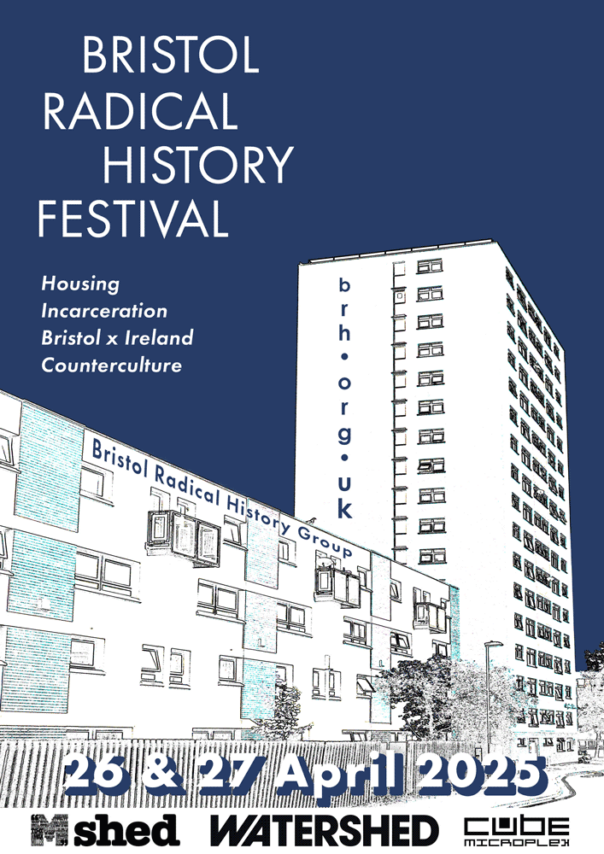
I don’t know about the other organisers but I always wake up with a big feeling of relief the Monday after the Bristol Radical History Festival. Now in its seventh year, the festival gets bigger and more ambitious each time. In the week before I always feel a gnawing worry of ‘are we really going to pull it off this year?’ Luckily for us, the answer so far has always been: yes we are!
Loads of work by loads of people goes into organising the Bristol Radical History Festival. It’s all done totally for free, from poster design and writing press releases to tech support and giving the talks and walks on the day. To protect the independence of our work, BRHG relies entirely on the proceeds of our publishing and bookstalls to fund our activities. I should mention, however, that for the festival we do, very gratefully, accept a free venue and really brilliant help from the indefatigable front of house staff from the M Shed. We are proud that one of Bristol’s flagship council venues supports the Bristol Radical History Festival in this way – it says something very positive about our city.
Organising gets underway in January, when a volunteer group starts meeting fortnightly, initially to decide on themes. Inspiration for these comes from many places – but often which speakers and new publications have caught our attention and seem important to share with a wider audience. Last year we had so many good talks and films that we couldn’t fit them into one day and the festival expanded into a second day at The Cube Microplex.
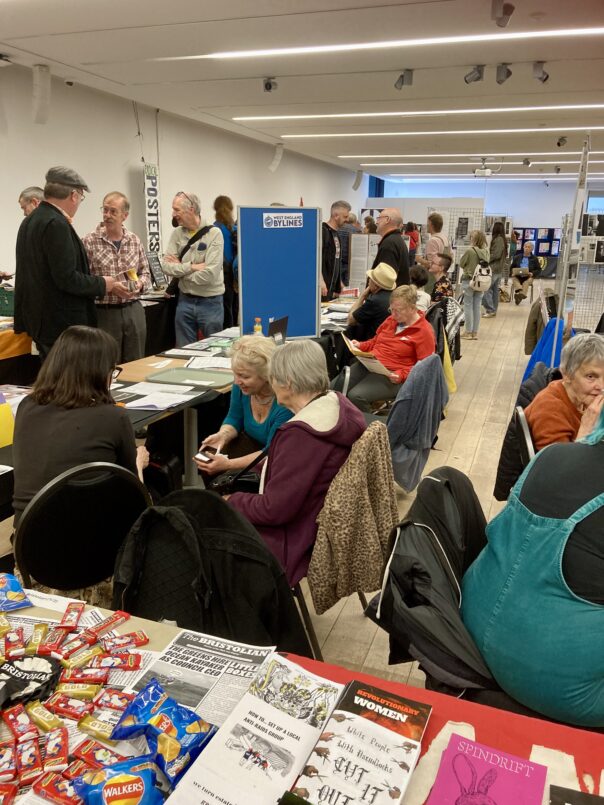
Any hope (by me) that this was a one off and we could go back to celebrating a well delivered festival in the pub on Saturday night without worrying about doing it all again the next day was immediately quashed in January. And I’m glad it was because our Sunday talks along the theme of counter-cultures of resistance were timely and inspiring. (Plus unlike on Saturday when I was too busy volunteering, I actually got to watch some of them.) When so many hard-won gains by minoritised communities seem increasingly under threat, it’s good to hear about how, for example, gay punks sustained a culture of resistance in 1970s Ireland, and to be reminded that grassroots struggle can create change in even the most oppressive circumstances.
Is sustaining a culture of resistance part of what the Bristol Radical History Festival is about? Well, if by that we mean shining a light on the hidden corners of history that those in power would rather you didn’t see, or challenging the narrative that history is made by great white men and the rest of us are merely buffeted about by the weather they create, then yes. We centre and celebrate history from below: of the people, by the people and for the people.
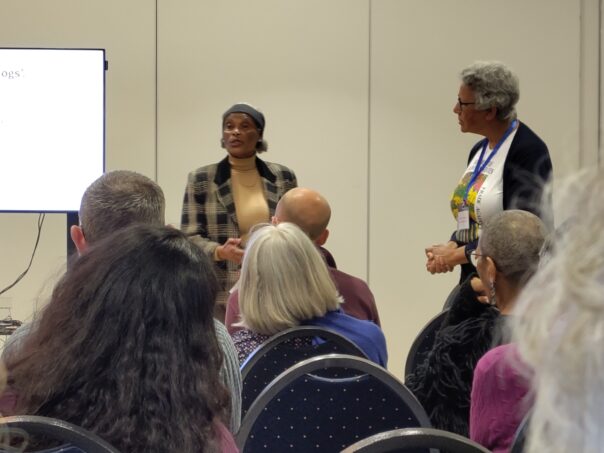
Apart from anything else, to my mind this approach throws up the most interesting stories, like Bristol bus boycott alumni Joyce Morris-Wisdom and Guy Bailey telling us how African Caribbean residents of St Paul’s circumvented the racism of banks and landlords to create a community alternative to mortgages called the ‘pardner hand’. (If, like me, you missed this talk, it and others will soon be available on the BRHG’s YouTube channel and website.)
This was just one of many stories at the festival about people and communities expressing their resistance, even at great personal cost. The biggest audience on Saturday was for a panel on the criminalisation of protest, featuring Gaie Delap, the Bristol grandmother and Quaker who was sent to prison for taking part in a peaceful protest on the M25 with Just Stop Oil. Despite still being on licence, and having already been recalled to prison once because Serco couldn’t find a tag small enough to fit her 78 year-old wrists, Delap’s talk showed her belief in peaceful resistance to injustice remained undimmed. She got a lot of applause.
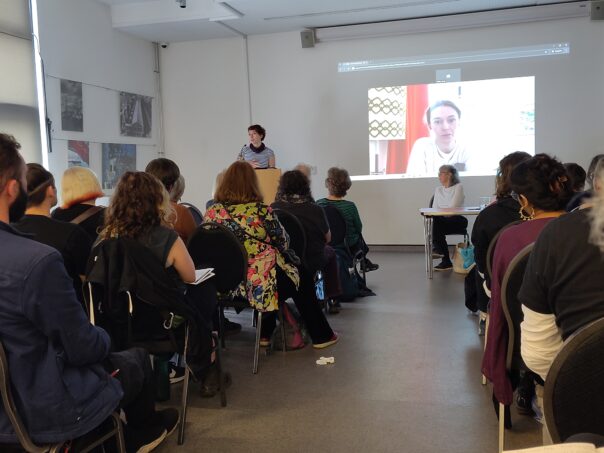
Some facts, figures and notes for next time:
More than 1,000 people attended the 26 presentations, panels and history walks at the M Shed and Cube on 26 and 27 April – an increase of more than 20 per cent from last year. In fact, one of the main complaints this year was that the programme has no timetabled break for lunch, so that people have to choose between eating and attending events. We will take that into consideration during next year’s planning.
Our speakers travelled from Glasgow, Newcastle, London, Somerset, Dorset and south Wales. We also invited the East Wall History Group from Dublin, to curate an entire theme of Anglo-Irish history talks this year, and so we had an international contingent of speakers from the Republic of Ireland . This increased our travel expenses but it was well worth the money. Building links with like-minded people around the world seems important in this era of the spreading poison of populist nationalism.
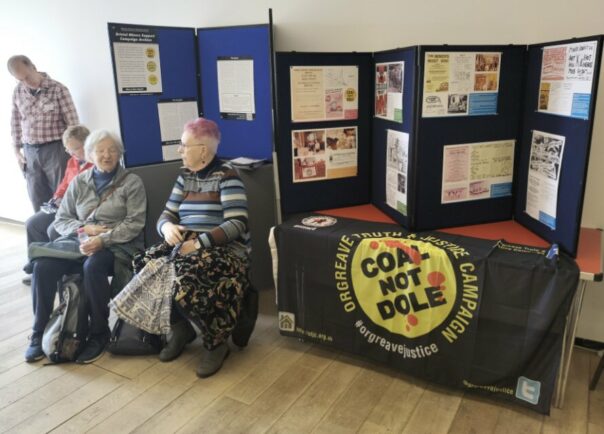
This year we mounted five exhibitions, up from three in 2024, which meant more volunteers were needed to take them up and down. (Did you know then entire festival has to be packed away in the 30 minutes between the end of the last talk and the M Shed closing at 5? You’ve never seen so many old historians move so fast.) I was particularly moved by Carlos Guarita’s ‘Short Sharp Shock’ photographs and Colin Adamason’s testimony from being an inmate in these militarised borstals in the 1980s, but all the exhibitions, from portraits of the Irish diaspora in Bristol to 50 years of Mozambiquan independence were really worth seeing, especially if you could catch one of the short talks about the contents.
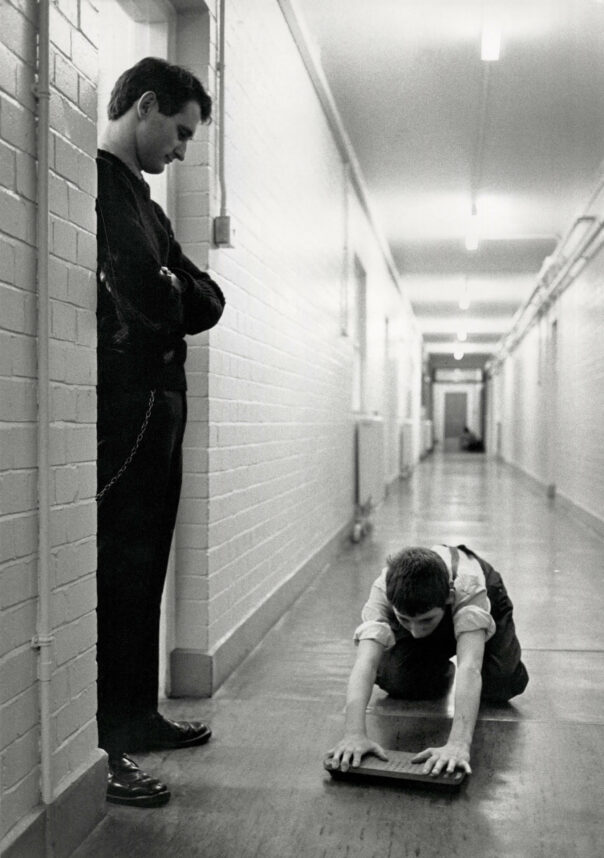
Another innovation was that festival briefly took over the Watershed on Saturday night, for a special screening of London Recruits, a documentary about British students and Communist Party members recruited by the ANC to undertake secret missions in apartheid South Africa. It was followed by a Q&A with the director and some of the London Recruits themselves, who were typically modest about their achievements and remain totally politically committed. It’s definitely worth seeing if it comes to an independent cinema near you.
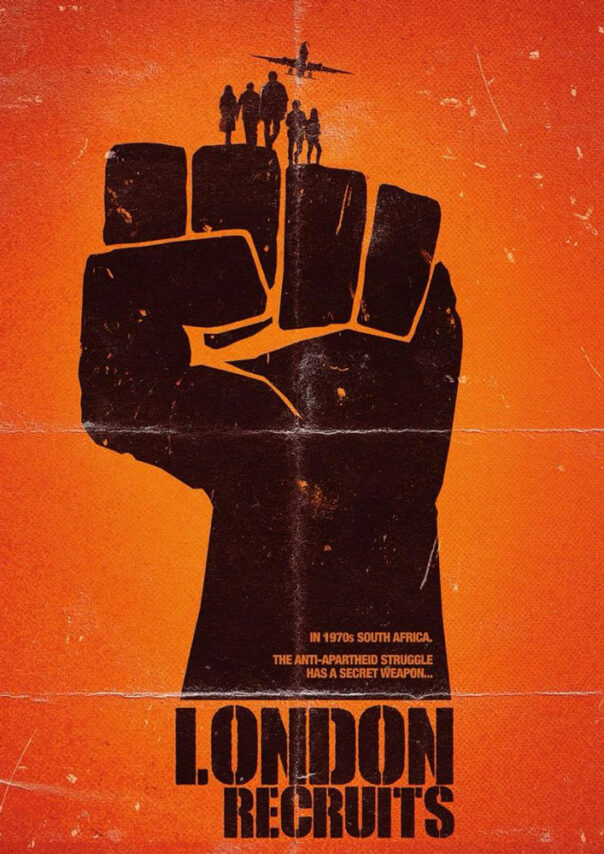
I thought the Red Notes choir sounded particularly beautiful this year – drawing me out from behind the BRHG bookstall on the second floor to listen to their ethereal socialist harmonies. Unfortunately, so powerful was their singing that speakers without microphones on the first floor reported trouble making themselves heard. Again, we’ll have a think how to stop that happening again next year – because it isn’t a Radical History Festival without the Red Notes choir. More and better mics seems like the most likely solution and we’re already talking to the M Shed about this.
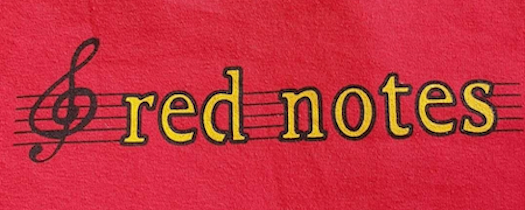
The organising committee meets for a final time a few weeks after the festival to discuss what went well, what could have gone better and how much the festival cost. We routinely ask participants for their feedback, and there are plans for next year to make it easier for punters to give comments on the day as well. Other than that, and the issues mentioned above, the main complaint seemed to be that there was too much good stuff to see and sometimes the number of people trying to see it made it hard to access – this was particularly true of the walks this year. There’s good and bad news in response to that: we refuse to lower the quality so that fewer people are interested next year, but we will – and did this year – record audio or video of as many talks as possible. Look out for announcements that they’re up on the BRHG website in the coming weeks and months.





Excellent review Rosie.
I travel from France every year to attend, do a bit of volunteering and hear a few talks. It is the highlight of my spring. The London Recruits film and QA was so inspiring. Those people really made a difference in South Africa. I know that BRHG also makes a difference; it is as if we embroider a small corner of the radical past, so people understand and can build on our knowledge. KEEP ON KEEPING ON.